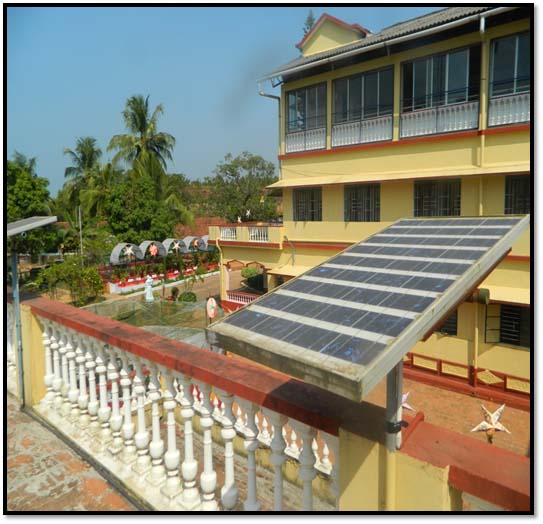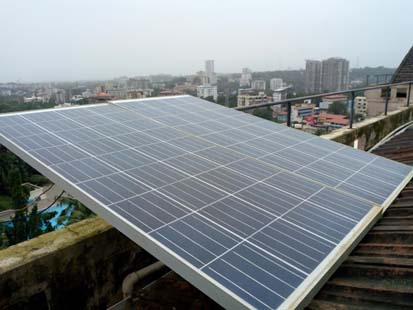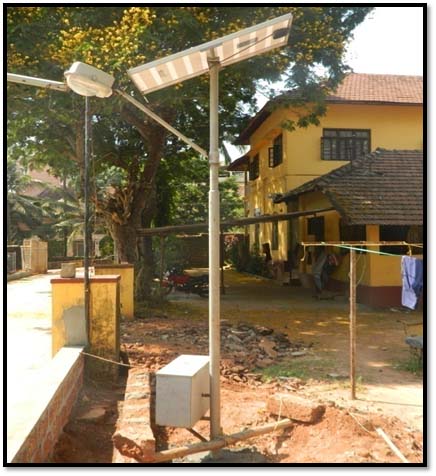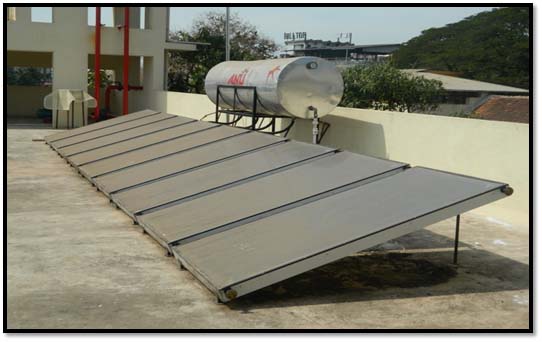Established in 1880, St Aloysius College prides itself in its history of 140 years. Despite its status as a minority institution, the college has imparted high quality education to all sections of society regardless of caste, colour or creed.
Green campus is a concept to build sustainable living practices that are environmental-friendly in educational institutions around the world.
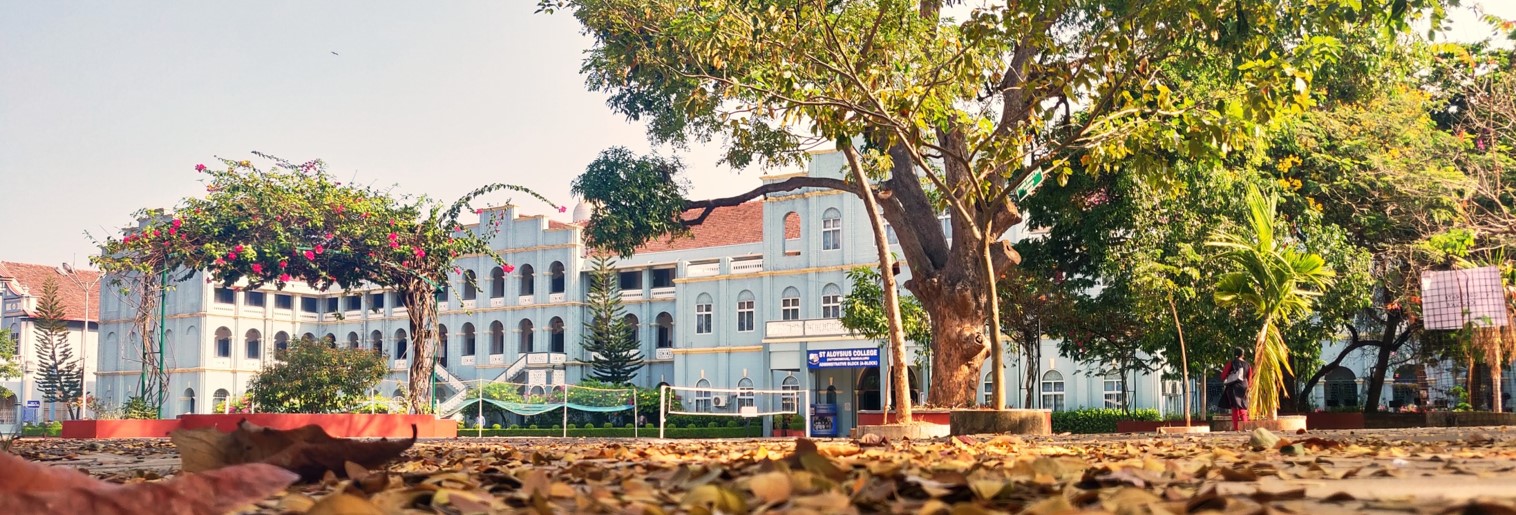
Sustainable environment in college campus impacts students’ lives positively on a daily basis as well. Studies have shown that students studying in active green campuses have better knowledge retention capacity, environmental behaviours, community solidarity, etc.
St Aloysius College has its own aesthetic beauty. The college welcomes everyone who enters the portal with its shaded park named “Mother Teresa Peace Park” surrounded by trees which have been developed in the Laboratory of Applied Biology of the College through tissue culture. Besides this, there are colourful landscape gardens creating many green spots in and around the campus.
Efforts are being made to develop the campus on green concepts, particularly focusing on water conservation, use of alternative sources of energy, solid waste management, vermicomposting, green belt development and sustainable architectural designs of buildings.
The campus is designed with several initiatives for reducing energy consumption and utilizing renewable natural resources such as solar panels. As a sustainable initiative, we have a vermicomposting unit to recycle organic waste from kitchen and garden using earthworms. It is envisaged to create the campus into a prototype of a ‘no waste’ and ‘carbon negative’ site.
St Aloysius College is conscious and committed to the environmental issues with regard to protection, conservation and sustenance of natural resources. AL-VANA – an Arboretum – with an expanse of about 1.5 acres is maintained as a mini biodiversity spot on the campus with its natural flora and fauna. About 150 plants belonging to 70 different species are maintained in this Arboretum. Among these, 3 species belong to RET category. The floristic components with a good canopy and topography are favourable for the enrichment of the species.
Click here to view: The GREEN AUDIT of the Campus
VRAKSHANJALI – AN ENVIRONMENTAL AWARENESS PROGRAMME - 2018
St Aloysius College (Autonomous) organized an Environmental Awareness Programme – VRAKSHANJALI sponsored by STAR College Scheme on 3rd July 2018 in the LCRI Hall. Nadoja Saalumarada Thimmakka was the Chief Guest. Sri Umesha B.N. and Environmentalist Sri Dinesh Holla were the Guests of Honour. Principal, Rev. Dr Praveen Martis S.J. presided over the programme.
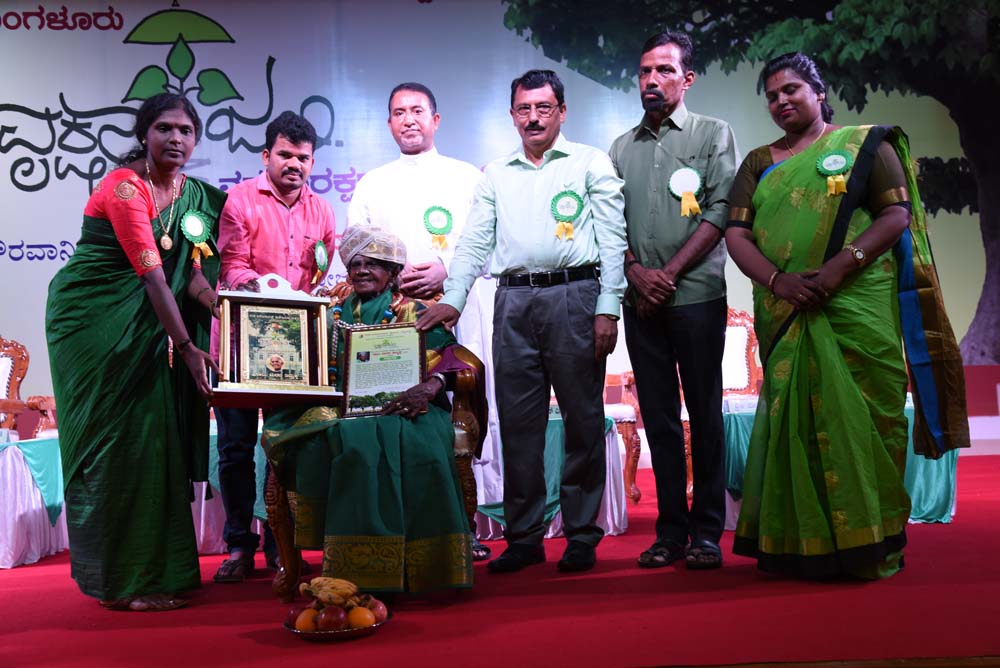
During the programme, Nadoja Thimmakka and Sri Umesha B.N. planted saplings in Mother Theresa Peace Park and she inaugurated the “Tissue Culture Avenue” lined by test tube trees developed by the doctoral students of the Laboratory of Applied Biology, St Aloysius College. A documentary on Nadoja Thimmakka was shown by the Department of Journalism. There was a skit on Environment from the students of Swaroopa Adhyayana Kendra, Mangaluru under the guidance of Sri Gopadkar. Besides this, Salumarada Thimmakka was honoured during the programme
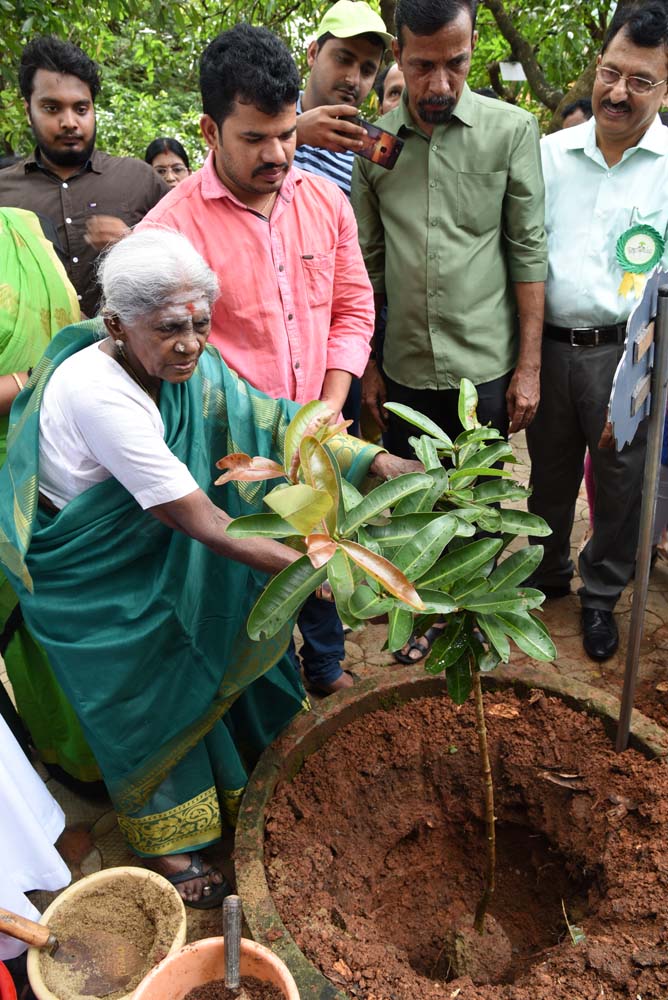
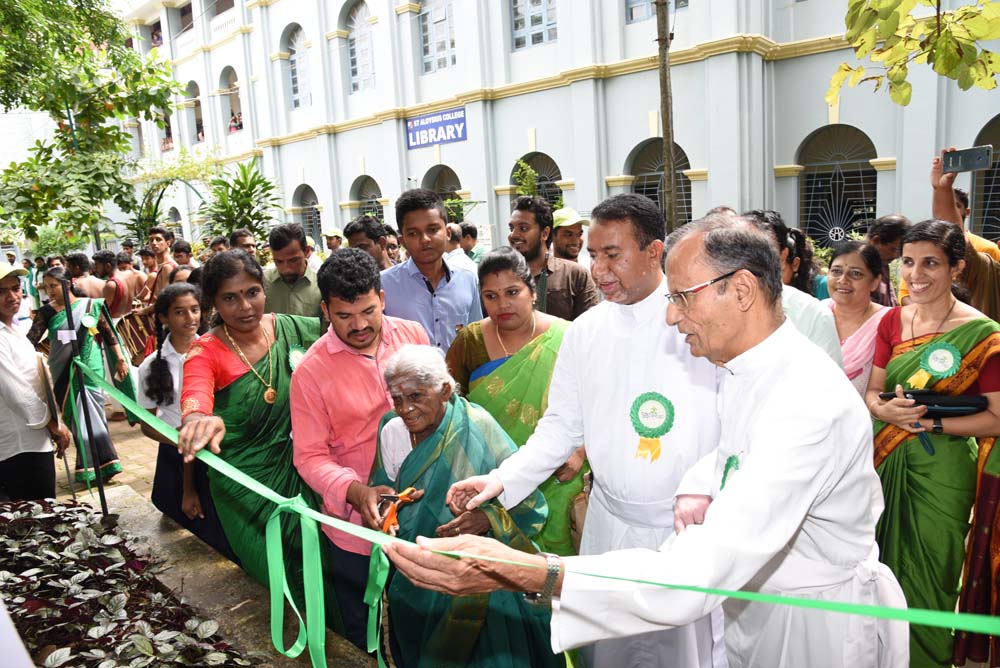
National Conference on “Current Trends in Entomology and Plant-Insect Interaction”
The inauguration of the two-day National Conference on “Current Trends in Entomology and Plant-Insect Interaction” was held on 11th & 12th September, 2019 at 9:30 a.m. in LF Rasquinha Hall of the College. This programme was organized jointly by the Departments of Botany and Zoology of St Aloysius College (Autonomous), Mangaluru and sponsored by the STAR College Scheme of the Department of Biotechnology, Govt of India.
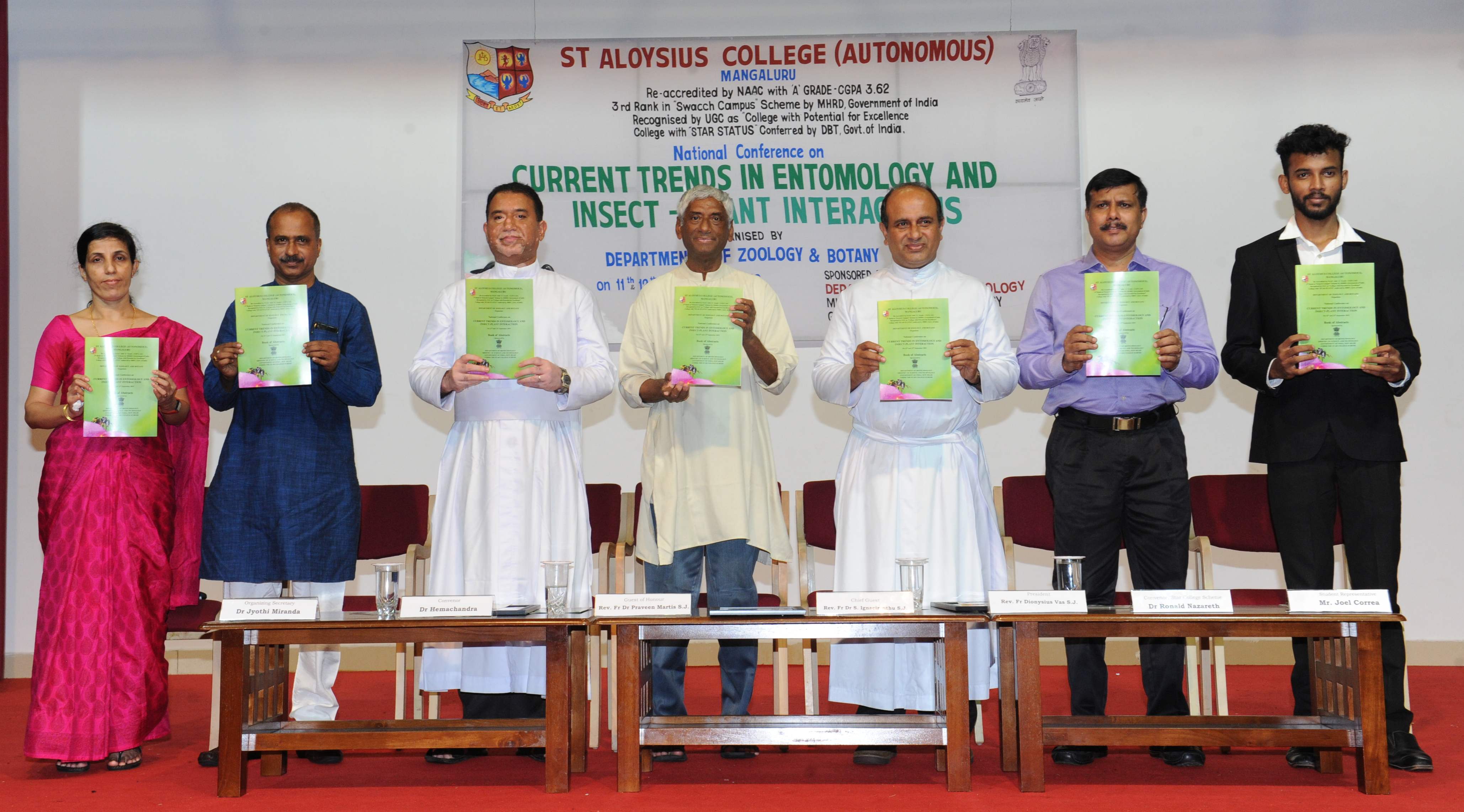
Rev Dr S. Ignacimuthu, SJ, An Emiretus Scientist, Former Vice-chancellor of University of Madras and Bharathiar University and Former Principal, Loyola College, Chennai was the Chief Guest and delivered the keynote address. Rev. Fr Dionysius Vaz, SJ, Rector of St Aloysius Institutions, presided over the programme. Rev. Dr Praveen Martis, SJ, Principal was the Guest of Honour. Dr Hemachandra, HOD of Zoology, Dr Jyothi Miranda, Organising Secretary, Dr Ronald Nazareth, Co-ordinator, STAR College Scheme and the Student Convenor, Joel Correa were on the dais.
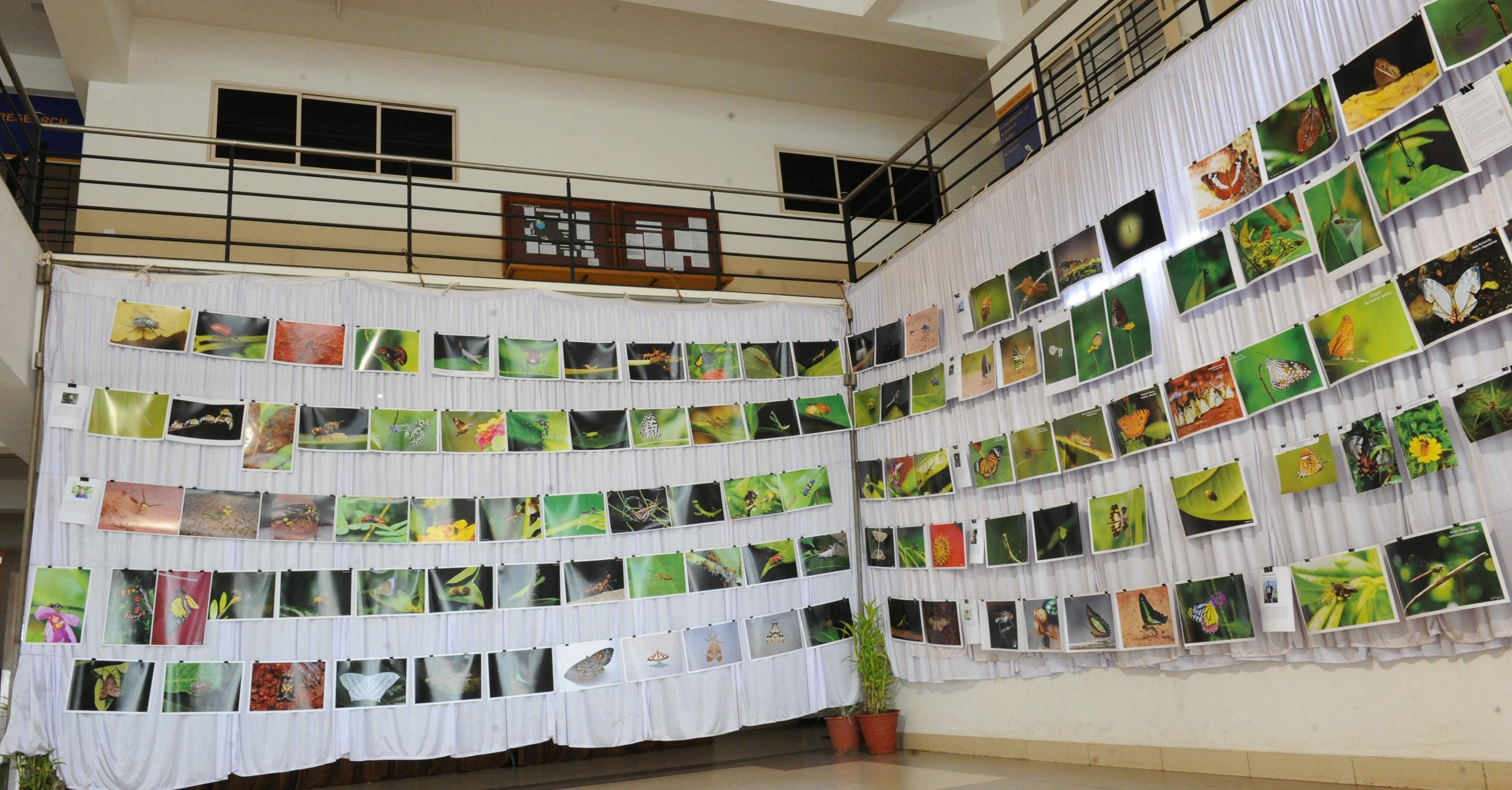
During the programme, a CD on Inventory on Insects (Fauna) of the College Campus was released by the Chief Guest, Rev Dr S. Ignacimuthu, SJ. A book of Abstracts was released by Rev. Fr Dionysius Vaz, SJ.
Green Initiative Drive by Commerce Dept
A Green Initiative Drive in association with Centre of Social Concern, St Aloysius College (Autonomous) held on 4th November, 2020 at in Xavier Auditorium. Mentors of B.Com department participated in the drive.
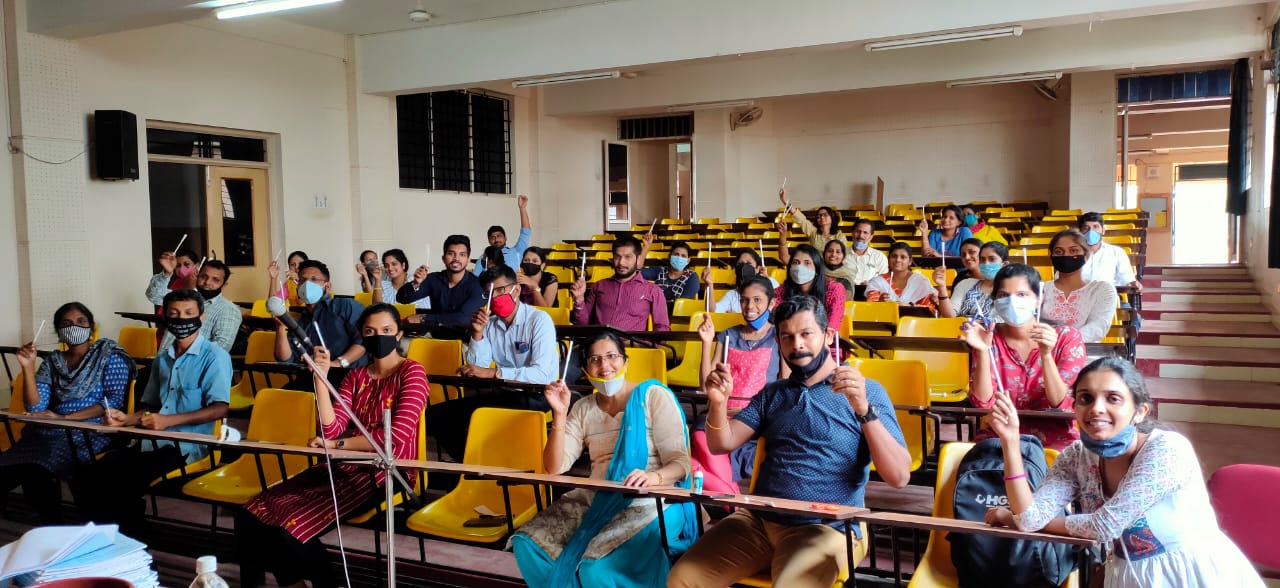
Mr Jayaprakash Yekkuru the resource person, an active environmentalist shared his expertise and trained the mentors to make eco-friendly paper pens in which a vegetable seed was implanted. He also created awareness among the mentors regarding eco-friendly fish bags and to collect plastic waste in plastic water bottles.

35 bird species sighted from the heart of Mangaluru city
Campus bird count (CBC) is a sub-event of the larger ‘Great Backyard Bird Count’ (GBBC), organized by Bird Count India in collaboration with eBIRD every year since 2015. This is an effort to document the bird life in various campuses across India. This year 252 campuses took part in this mega birding event.
St Aloysius College, a 140 year old campus is situated at the center of Mangaluru city and is spread over 37 acres. The campus took part in this event for the second consecutive year. The event was organized by Department of Zoology. The campus bird count team was led by Dr. Vineeth Kumar K., Assistant professor, Department of Zoology in active presence of all the staff members and Dr Hemachandra, Head of the Department of Zoology. About 45 students from various UG Science, Arts and Commerce departments of the college actively participated in the bird count.
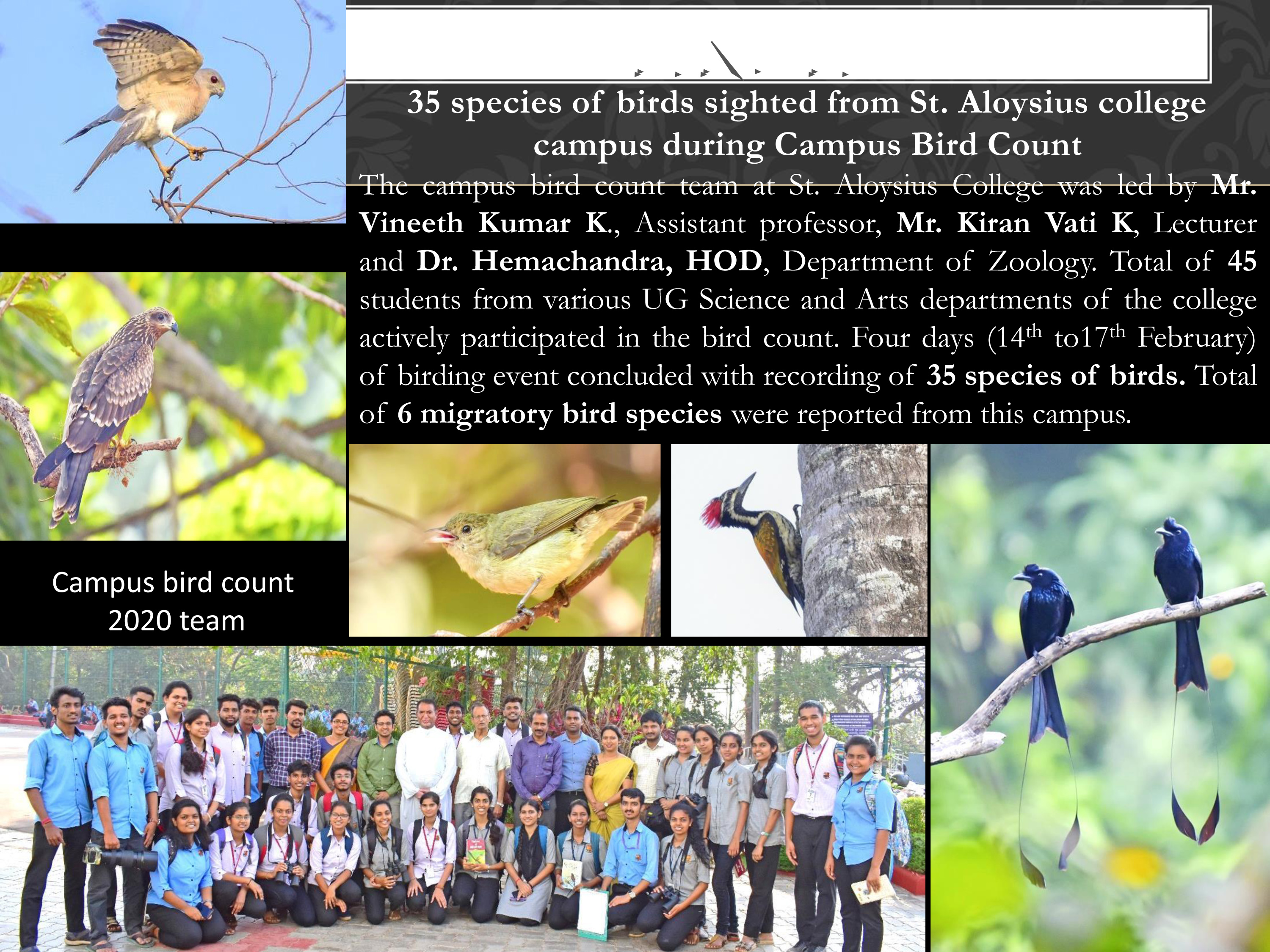
Four days (14th to 17th February) of birding event concluded with recording of 35 species of birds. The common most birds of the campus include Black kite, Brahminy Kite, Feral Pigeons, Chestnut-tailed Starlings, Asian Koels and White- cheeked barbet. Total of 6 migratory bird species were reported from this campus which includes Blyth’s reed warbler, Green Warbler, Large billed leaf warbler, Indian paradise flycatcher, Blue-tailed bee-eater and Ashy Drongo.
The campus being in the midst of a crowded coastal city is home to several bird species, which is a rare and interesting observation. This emphasizes the importance of green patches in an urbanized area. Campus has several small green patches with large woody trees which act as sheltering grounds, additionally there are many flowering and fruiting plants in the campus which attracts many birds as they provide food to these birds. There are hundreds of Black kites seen perched on top of various buildings in the campus. Calls of Asian Koels and White-cheeked barbets can be heard throughout the day. Flocks of hundreds of Chestnut-tailed starlings flying around the campus is a blissful sight to cherish.
The campus of St. Aloysius is among the oldest and the largest campuses in the city. About 400 species of herbs, shrubs and trees have been identified on the campuses. Some are native to this land and others are exotic. Some of the tree here are older than the institute itself. The green cover of the campus with its flowers and fruits is a home to many species of insects. There are original forest patches which exits in the campus. Inspite of the college being located in the heart of the city but human interference round the clock, the green cover provides shelter for many species of insects.
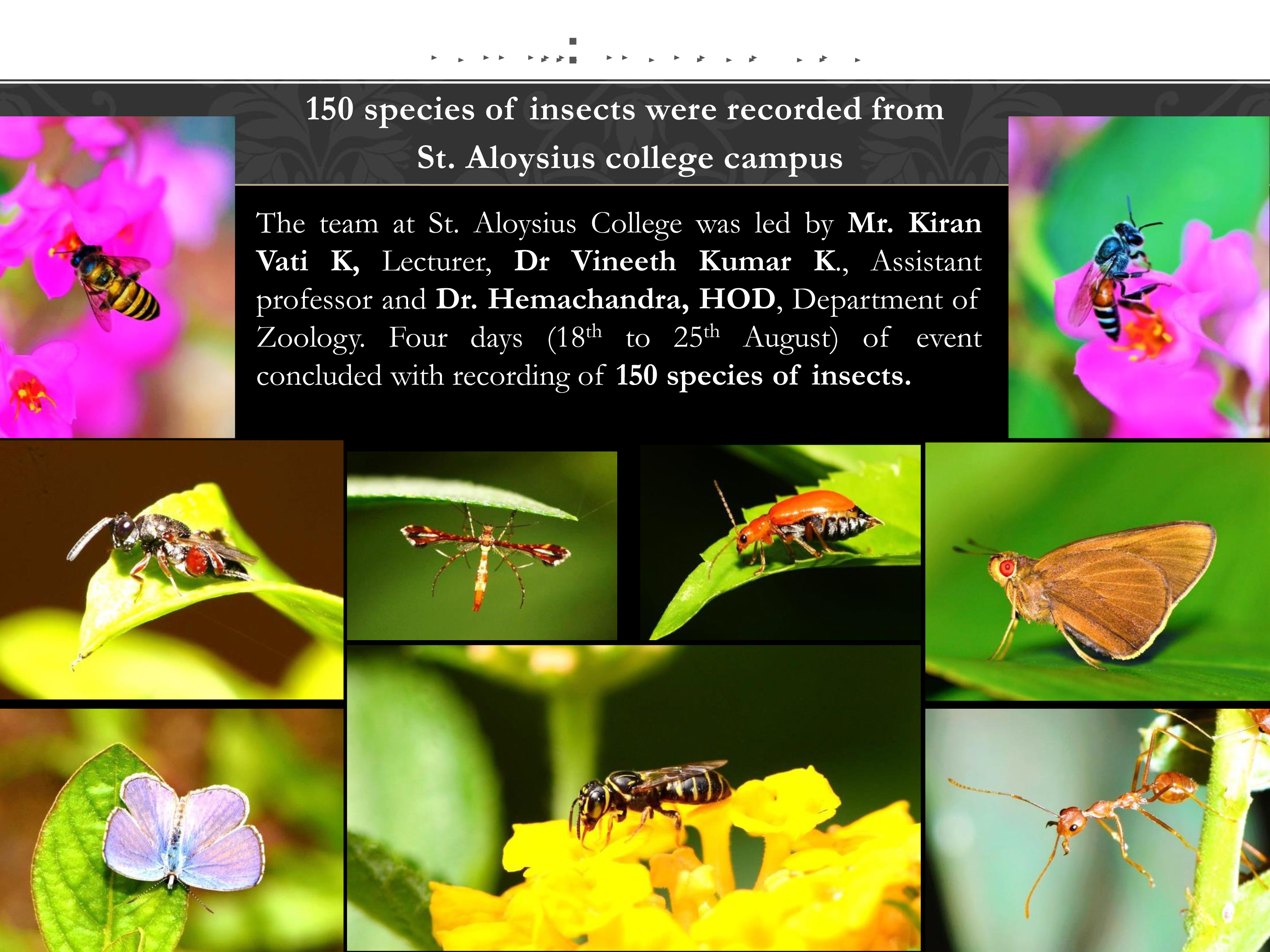
The department of Zoology and Botany and the College itself are conscious to various environmental issues and are committed to work on conservation of Nature in all possible ways.
Here is an attempt by the Zoology department under the leadership of Mr Kiran Vati K along with Dr Vineeth Kumar K to document the insect fauna of the campus. This inventory includes various group of insects like 37 species of Butterflies, 41 species of Moths, 12 species of Wasps, 7 species of Bees, 5 species of Ants, 8 species of Dragonflies and Damselflies, 5 species of Grasshoppers, 13 species of Flies, 8 species of Bugs, 4 species of Beetles and 4 species of Mantids.
Vermicompost Bin Setup – Dept. of Zoology, St Aloysius College (Autonomous)
Vermiculture composting (vermicomposting, worm composting) is the act of creating rich, organic humus for your garden or lawn by allowing earthworms to help in the decomposition process. Earthworms eat food scraps and excrete fertilizer (worm castings). The resulting castings enrich soil by improving texture, increasing nitrogen, trace minerals, and natural growth hormones from the worms themselves.
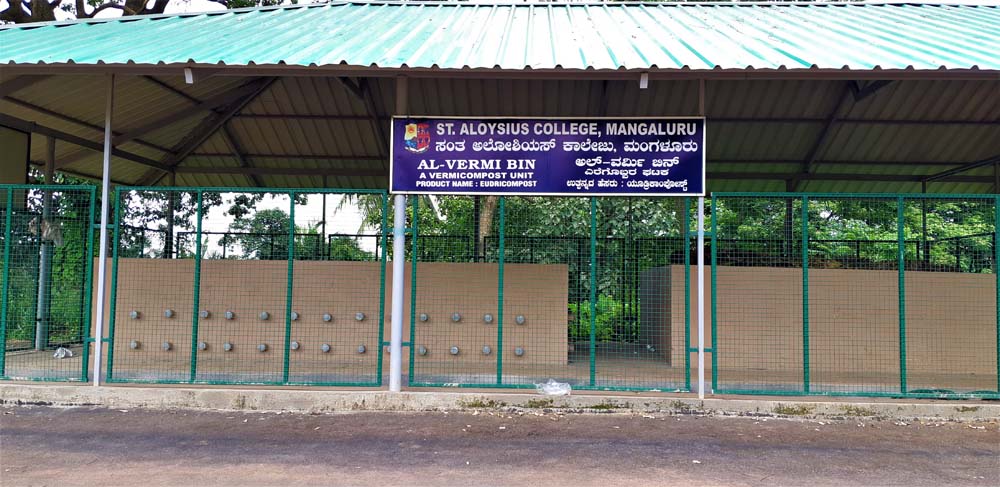
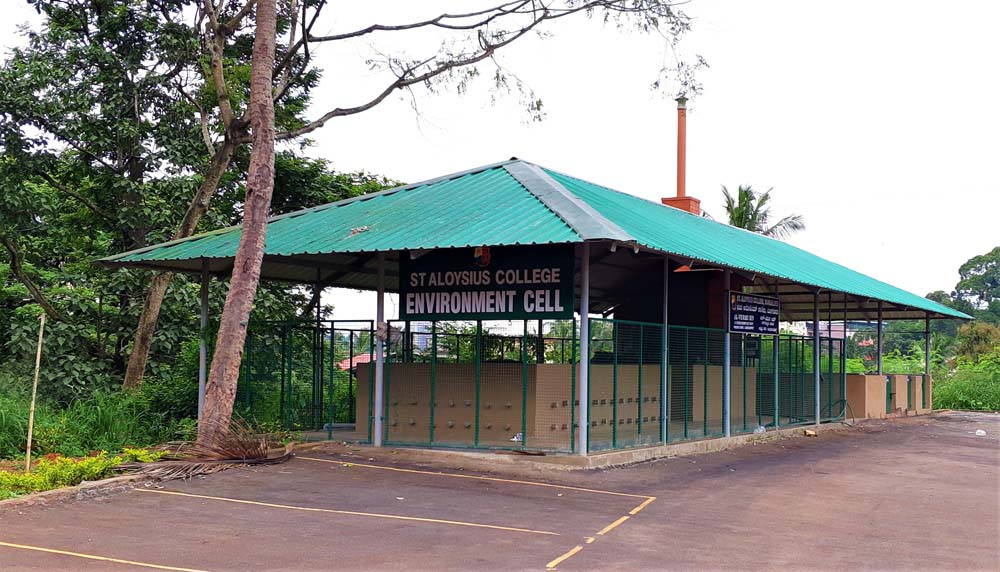
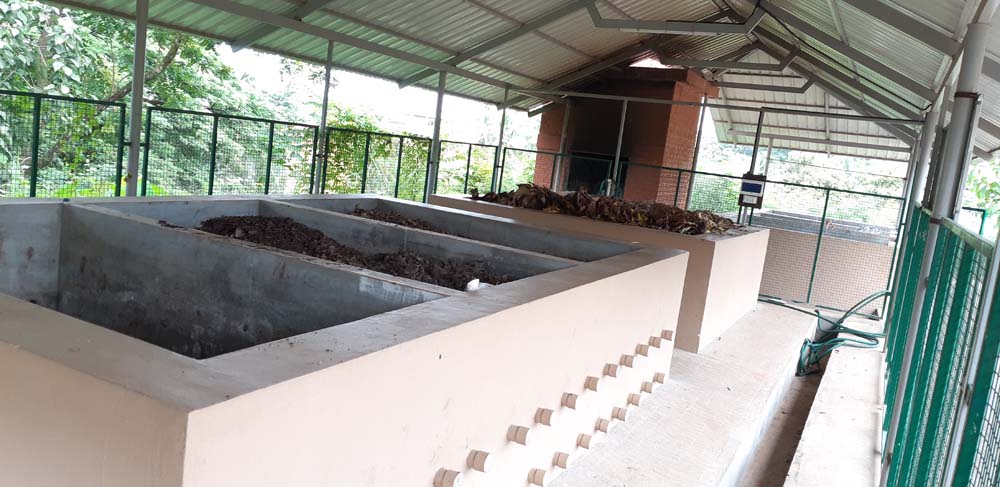
Vermicomposting at St. Aloysius College
- Public awareness through seminars and workshops
- Regular Vermitech Diploma Course
- Portable Vermibins-Designed by Dr. Hareesh Joshi, Retired Prof. Dept of Zoology is being utilized by various institutions
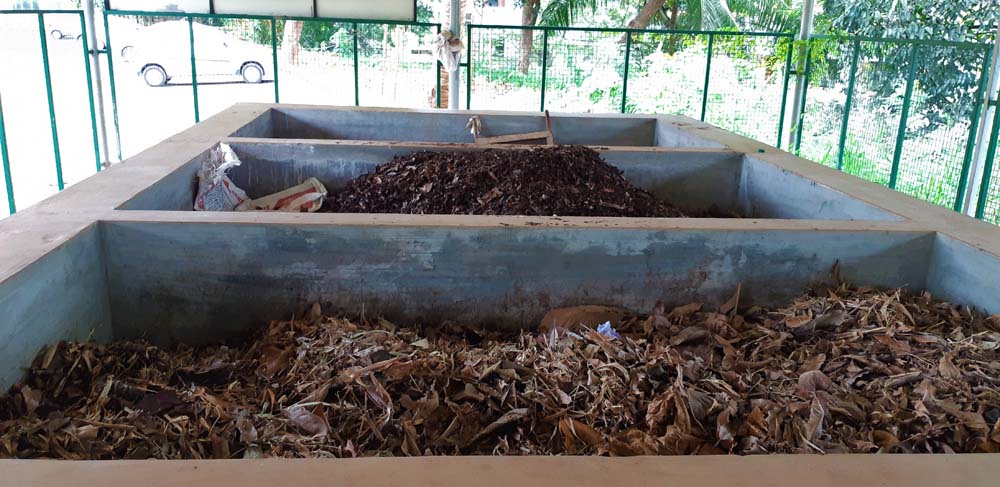
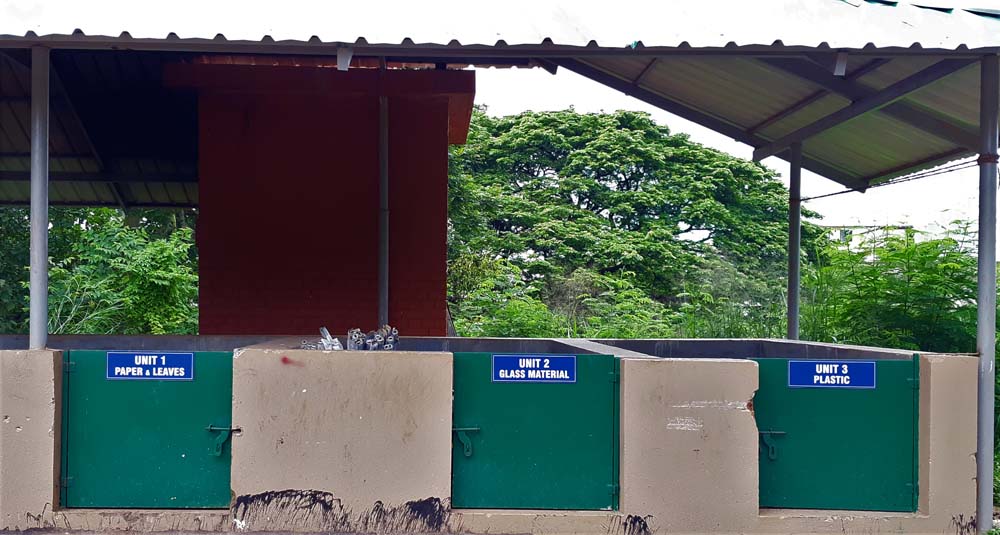
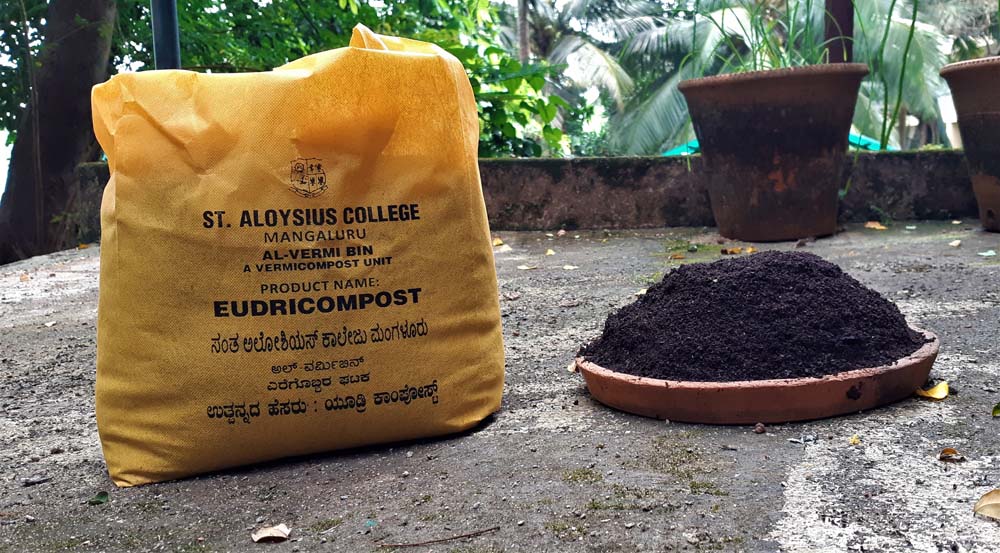
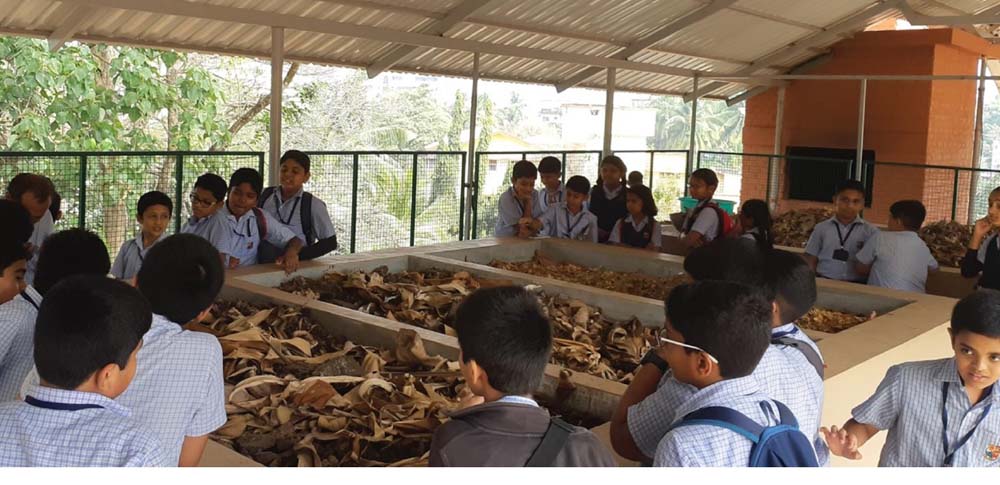
Solar panels have been installed in the Main College Campus, Boys Home, Kotekar and College Hostels to minimize energy consumption.
- Existing energy consuming devices like tube lights, are replaced by LED energy saving models.
- There is proper monitoring of unplugging of electrical and electronic devices like lights, fans, computers, lab equipments, etc to save energy.
- To bring in awareness, instructions and slogans are put in every class room to save energy and water.

USE OF RENEWABLE ENERGY – MAIN CAMPUS MAFFEI BLOCK –SOLAR ROOF TOP PHOTO VOLTAIC PLANT-100 solar panels with total capacity of 25 KWpwith a bidirectional meter supplied to power grid

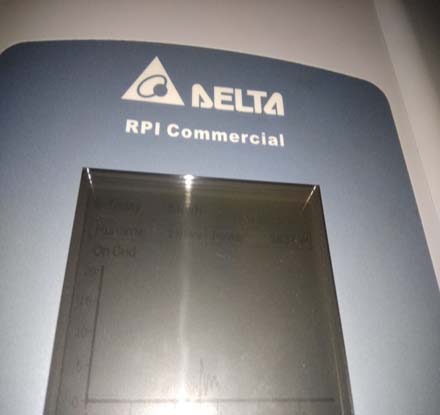
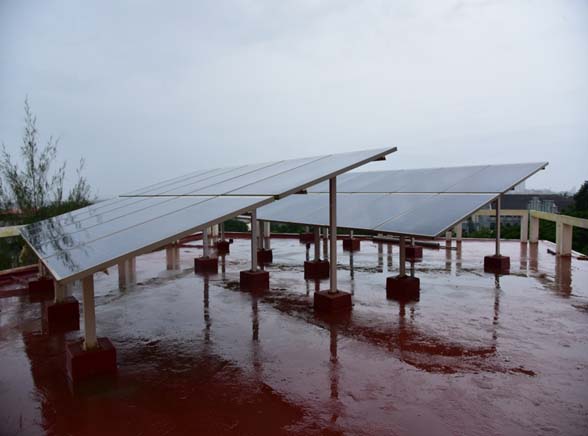
A unit with four panels is in usage at Boys home, and hostels of college campus as an alternate source of energy used for bathing and electricity.
